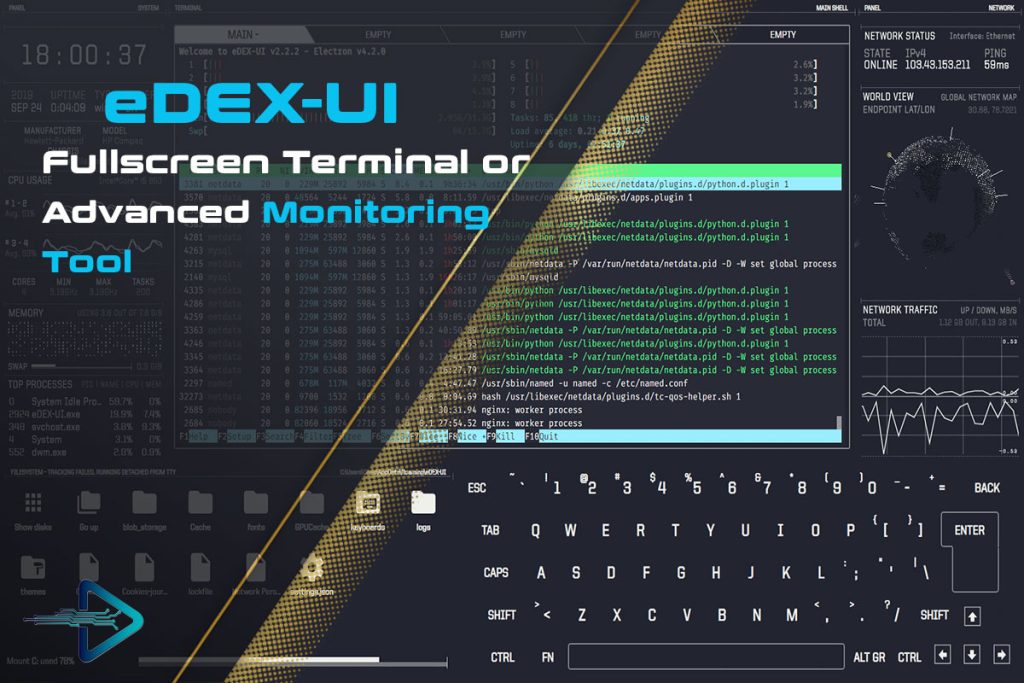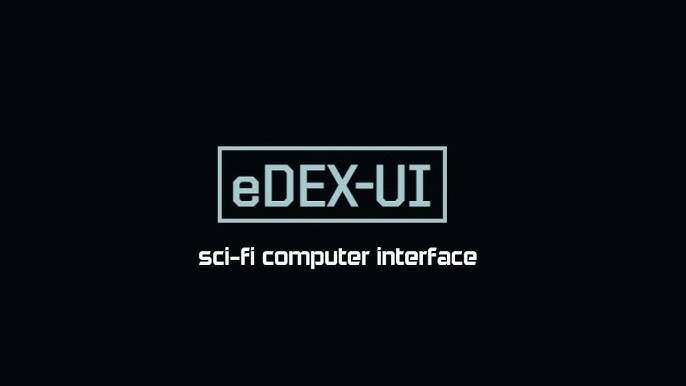Open-source world, software tools come and go. eDEX UI, a futuristic terminal emulator with a sci-fi interface, once caught the attention of developers and enthusiasts alike. Its full-screen layout, animated visuals, and real-time system stats made it a visually immersive tool unlike traditional terminals. But as newer tech emerges, the question arises—is eDEX UI still actively maintained or has it been discontinued?
eDEX UI is built using Electron, Node.js, and web technologies, allowing it to run cross-platform with visually rich graphics. While it never aimed to replace professional-grade terminals, it found a niche audience for its novelty and educational appeal. Over time, however, activity in the GitHub repository and online discussion forums began to fade, raising concerns about its future.
This article explores the current status of eDEX UI, tracking its development history, latest updates, community activity, and available forks. We’ll break down whether the tool is still viable in 2025, if alternatives exist, and what to do if you’re currently using or planning to try it. Understanding eDEX UI’s maintenance status can help users decide if it fits their workflow or if it’s time to explore modern alternatives that offer similar aesthetic features with active support.
Development Timeline and Milestones
Initial release and popularity
eDEX UI was launched as an open-source project in 2019, quickly gaining traction due to its stunning visual appeal.
Version updates and changelog
Early versions saw frequent improvements, including bug fixes, UI tweaks, and expanded compatibility for shells like zsh and PowerShell.
Peak user interest
At its height, the GitHub repository had thousands of stars, and tech bloggers showcased it in demo videos and tutorials.
Current Maintenance Status
- Last official update was in early 2021
- No recent commits from the original creator
- Forks exist with limited enhancements
Stagnant repository activity
The original GitHub repo has seen little to no commits in over two years, indicating halted development.
Maintainer inactivity
The original developer shifted focus to other projects and hasn’t issued formal statements about continuing or sunsetting the tool.
Security and compatibility concerns
Without updates, security patches and compatibility with the latest OS versions may be lacking or broken.
Community Contributions and Forks
Popular forks with fixes
Several developers have forked eDEX UI to fix bugs, remove bloat, and enhance performance.
Niche community support
Reddit, GitHub Discussions, and YouTube still feature posts from users who modify or customize their own eDEX UI builds.
Limitations of unofficial versions
Most forks aren’t actively maintained either, and may lack thorough documentation or cross-platform testing.
Technical Issues and Challenges
- Outdated dependencies like Node.js and Electron
- UI bugs on newer OS releases
- High resource usage on older hardware
Compatibility issues on Windows 11 and macOS Sonoma
New operating systems may break features like keystroke tracking or system stat displays due to API changes.
Electron version lock-in
eDEX UI depends on an older Electron version, complicating upgrades without major refactoring.
Performance bottlenecks
Animations and UI transitions cause lag or crashes on systems with limited GPU or memory.
Alternatives to eDEX UI
- Warp Terminal for modern UI with speed
- Cool Retro Term for retro aesthetics
- Terminus for a customizable Electron-based experience
Feature-rich modern terminals
Apps like Warp and Hyper combine modern UI with productivity features, offering an updated alternative.
Aesthetic-focused terminals
Cool Retro Term replicates old-school CRT visuals while being actively maintained.
Customizable environments
Terminus and Alacritty allow theming and extensions, appealing to users who liked eDEX UI’s look.
Should You Still Use eDEX UI?
Personal vs. professional use
It’s still fun for demos or personal customization but not recommended for enterprise or security-sensitive environments.
Risk of outdated dependencies
Unmaintained software poses risks if used for critical work—especially if OS updates break compatibility.
Final verdict on usability
Use it with caution, mainly for educational or nostalgic purposes, not for regular daily terminal use.
FAQs
Is eDEX UI discontinued?
Official development has stopped, but community forks exist with minimal updates.
When was the last update released?
The most recent official release was in early 2021.
Can I still download eDEX UI?
Yes, binaries are still available on GitHub and other repositories.
Is it safe to use on modern systems?
Use caution—some features may break or behave unpredictably on newer OS versions.
Are there alternatives that look similar?
Yes, apps like Cool Retro Term and Hyper offer comparable visual flair.
Can I fix bugs myself?
If you’re a developer, yes—open-source access allows self-patching or forking the codebase.
Is there active community support?
Limited, but small groups on GitHub and Reddit discuss updates and mods.
Does it support modern shells like fish or PowerShell?
Yes, but some integrations may not function correctly due to stale dependencies.
Is it usable on ARM devices like Raspberry Pi?
Performance may suffer due to its high GPU and RAM usage.
Should I use it for serious work?
No. It’s better suited for demos or aesthetic purposes rather than critical workflows.
Conclusion
While eDEX UI made waves for its sci-fi look and immersive design, it’s no longer actively maintained by its original creator. With no major updates in years, users face compatibility, performance, and security issues. Forks exist but are often lightly maintained. For those seeking a polished, modern terminal, newer tools like Warp or Cool Retro Term are safer and more efficient. However, eDEX UI still holds nostalgic value and remains fun for non-critical usage. Ultimately, its future lies in the hands of the community and enthusiasts willing to keep the experience alive through unofficial updates and forks



